After food poisoning, the digestive system is still weak and has not fully recovered, so the food and drink consumed during this time is something that patients need to pay special attention to.
After food poisoning, choose easily digestible foods.
Specialist Doctor 1 Truong Le Luy Na, Deputy Head of the Department of Nutrition, Hospital for Tropical Diseases (HCMC), said that after food poisoning, patients are easily exhausted and have a poor appetite, so it is necessary to pay attention to choosing soft, easy-to-digest, easy-to-absorb foods to avoid creating an additional "burden" on the intestines; should eat cooked food, drink boiled water that has cooled down, limit foods that are high in fat or too much fiber.
“If the patient does not have milk intolerance disorders, milk is still a valuable nutritional supplement that helps the patient recover quickly after the poisoning has been controlled. Furthermore, yogurt and fermented milk drinks contain many beneficial bacteria that will help rebalance the intestinal microflora, helping the intestinal mucosa recover quickly. Patients should avoid unpasteurized milk and dairy products.”

After poisoning, you should eat easily digestible foods such as porridge and soup to support the stomach and other parts of the digestive system.
Provide enough water
In addition, Dr. Luy Na advises everyone to provide enough water: “During food poisoning, patients are often susceptible to dehydration and electrolyte loss. Patients need to replenish enough water, pay attention to using clean water sources such as boiled water, bottled water, fresh coconut water, mineral water... prioritize fruits that are less sour, have a lot of water such as watermelon, dragon fruit, cantaloupe... and fruits that are easy to digest, rich in potassium such as bananas, apples... Avoid using drinks with stimulants such as beer, alcohol, coffee".
For special subjects such as children, after food poisoning, children need to quickly get used to eating normally again, with a variety of foods, then increase 1 meal compared to normal in the first 1-2 weeks to ensure weight recovery. Food should be soft, easy to digest and divided into many small meals.
For the elderly, chewing ability is reduced, gastric juice secretion is reduced, making the patient bloated, indigestion, and decreased appetite, so they should eat soft, easily digestible foods. Patients should also limit foods high in fat and spices that irritate the stomach, such as sour, spicy, and hot foods.

Doctor Luy Na advises people not to eat foods that show signs of spoilage or discoloration.
Pay attention to salt intake
Dr. Luy Na recommends a healthy, balanced diet, supplementing all nutrient groups with moderate amounts of spices to ensure health. The World Health Organization (WHO) recommends eating less than 5 grams of salt per day. This amount of salt is not only found in pure salt but also in common spices such as fish sauce, soy sauce, seasoning powder, MSG... Patients should limit this group of spices in their diet whether they have food poisoning or not.
“When eating, we should choose fresh food, not spoiled, not expired and always have a clear origin. Always ensure that food preparation utensils are clean, wash hands with soap before eating, and carefully observe food before use. If the food shows signs of change in color, taste or increased viscosity, it should not be eaten. How to preserve food is also very important, it is best to eat immediately after cooking, eat within the day and store properly for the right amount of time to ensure the health of the user.”
Source: https://thanhnien.vn/hau-ngo-doc-thuc-pham-nguoi-benh-can-chu-y-gi-ve-che-do-dinh-duong-185241129201802783.htm



![[Photo] Students of Binh Minh Primary School enjoy the full moon festival, receiving the joys of childhood](https://vphoto.vietnam.vn/thumb/1200x675/vietnam/resource/IMAGE/2025/10/3/8cf8abef22fe4471be400a818912cb85)
![[Photo] Prime Minister Pham Minh Chinh chairs meeting to deploy overcoming consequences of storm No. 10](https://vphoto.vietnam.vn/thumb/1200x675/vietnam/resource/IMAGE/2025/10/3/544f420dcc844463898fcbef46247d16)





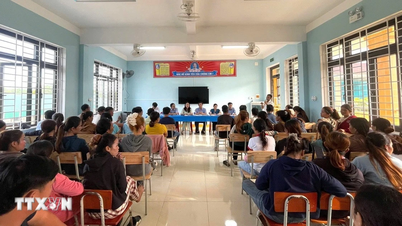

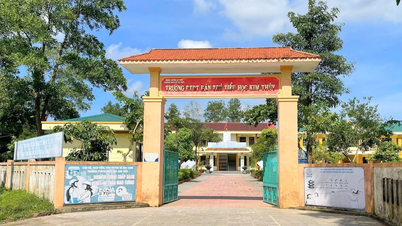



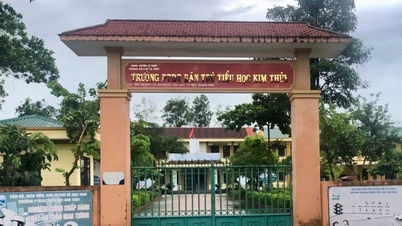



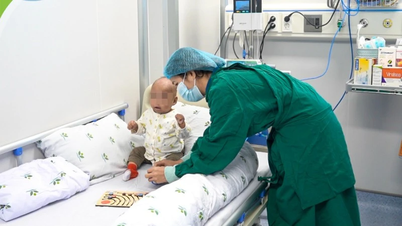
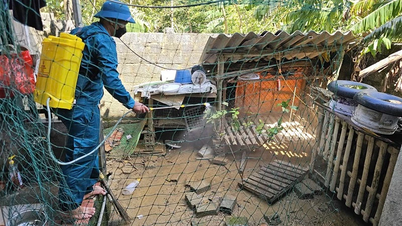

















































































Comment (0)